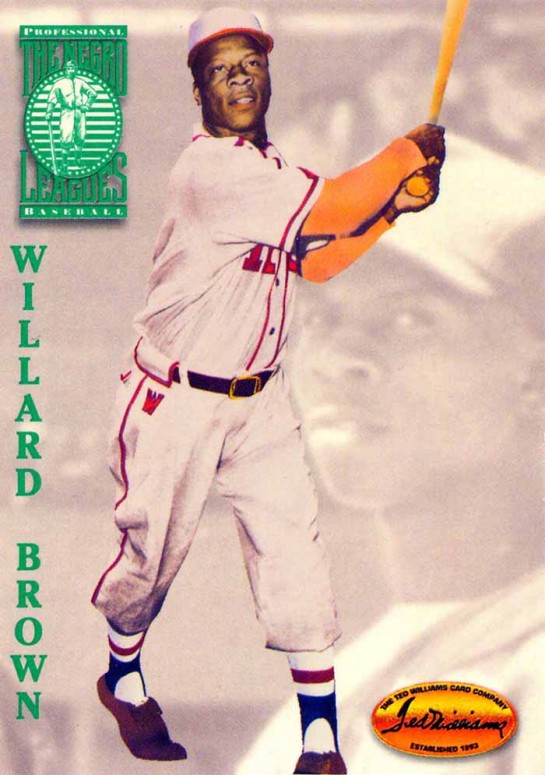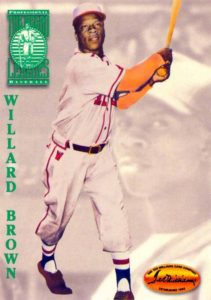Willard Brown
Louisiana-born Willard Brown was a power-hitting star in Negro League baseball before the integration of the major leagues in 1947.

Courtesy of The Louisiana Endowment for the Humanities
Willard Brown. Ted Williams Card Company (Publisher)
Willard Jessie Brown was a power-hitting star in Negro League baseball before the integration of the major leagues in 1947. The Shreveport native was dubbed “Home Run” Brown for his prodigious ability to crush balls over the fences. He got a chance to play with the St. Louis Browns during the summer of 1947, just a few months after Jackie Robinson broke racial barriers by signing with the Brooklyn Dodgers. But Brown’s stint in the major leagues was brief, lasting just less than a month before he returned to the relative obscurity of the African American game. His accomplishments were posthumously recognized in 2006 when a special committee elected him to the National Baseball Hall of Fame.
Brown began his professional baseball career in northeastern Louisiana with the Monroe Monarchs, a team affiliated with the Kansas City Monarchs, one of the most powerful franchises in the Negro Leagues. Brown starred for Kansas City for a total of about ten years, hitting home runs of such distance and power that fellow Hall of Famer and Negro League star Josh Gibson, himself called “the black Babe Ruth,” gave the Louisianan his power-hitting moniker “Home Run” Brown.
Brown also excelled south of the border, where dozens of Negro Leaguers played in various Latin American leagues during the winter months or even year-round. Brown especially stood out in the Puerto Rican leagues, where local fans gave him another sobriquet—“Ese Hombre,” or “That Man.”
However, despite Brown’s talents, some peers and critics accused Brown of being a “Sunday player,” giving less than one hundred percent during weekday games, when crowds in the stands were small, and only turning on his best on the weekends, when fans at Negro League parks numbered in the tens of thousands. Other experts assert, though, that it only appeared that Brown was loafing because he made playing outstanding baseball look so easy.
When major league teams, beginning with Brooklyn and the Cleveland Indians, started to integrate baseball, the struggling St. Louis Browns signed Brown, then thirty-two years old, and fellow Negro League star Hank Thompson. Brown and Thompson became the third and fourth black major leaguers when they took the field for the Browns in July 1947. For various reasons—some scholars and aficionados assert racism on the part of teammates, opposing players, and fans, as well as Brown’s frustration with the lack of talent on the team—Brown foundered in the majors and was let go by the Browns just a month after he debuted.
Brown returned to the Kansas City Monarchs for a couple years, then bounced around the minor leagues until leaving baseball in 1956. He retired to Houston, Texas, and died there in 1996, ten years before a special Negro Leagues Committee elected him to the Hall of Fame in 2006.
